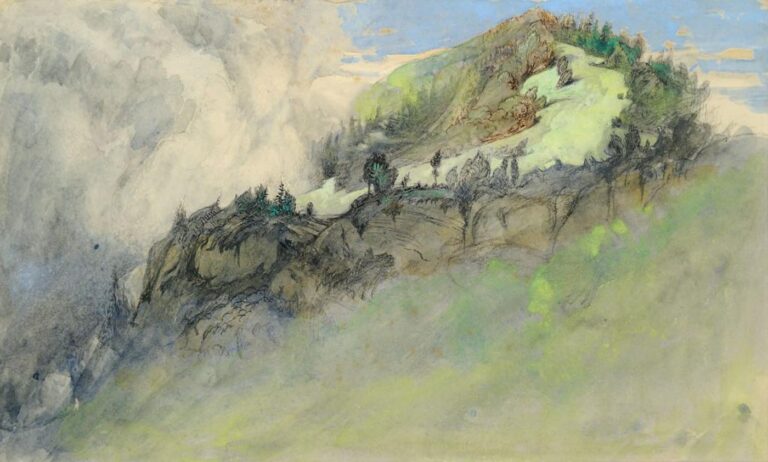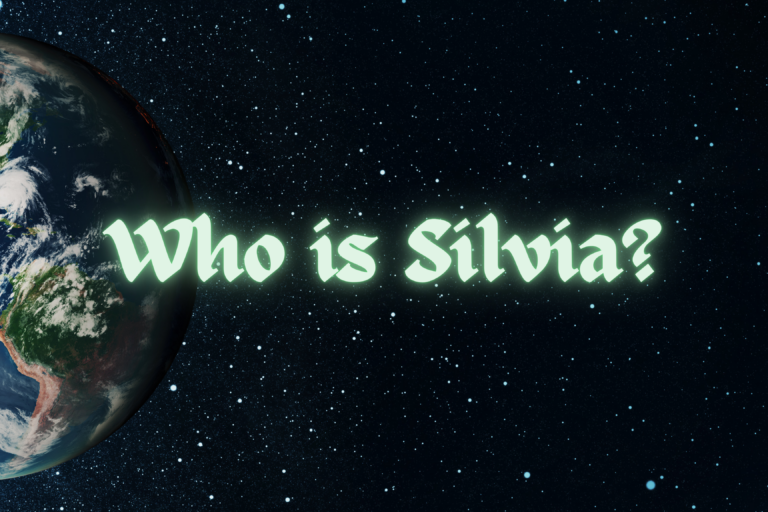A Heart beneath a Stone
Today, as Omar Khayyam, translated by Edward FitzGerald, once said:
Carpe diem: Ah, make the most of what we yet may spend, before we too into the dust descend; dust into dust, and under dust, to lie, sans wine, sans song, sans singer, and – sans end.
Therefore, I want to embrace the moment and share the company of a dear friend—one who makes me proud to be human. As Shakespeare so beautifully described,
What piece of work is a man, how noble in reason, how infinite in faculties, in form and moving, how express and admirable in action, how like an angel in apprehension, how like a god! The beauty of the world. The paragon of animals.
Today, I invite you to join me in celebrating one of France’s greatest literary minds: Victor Marie Hugo—a poet, storyteller, and playwright whose words continue to inspire and move generations.
Hugo’s works are an exquisite blend of beauty, justice, and love. His words overwhelm us with kindness and emotions, much like a grand symposium where ideas flow freely, and emotions run deep. Speaking of love, he defined it powerfully in Les Misérables:
The reduction of the universe to a single being, the expansion of a single being into God, this is love.
Even his critics could not deny his genius. André Gide, a harsh critic of Hugo, was once asked who the greatest French poet of all time was, and his reluctant response was: “Victor Hugo, alas.” He may not have liked the man, but he could not help but revere the poetry.
A Hymn for the Heartbroken: Les Misérables
Hugo’s Les Misérables is not just a novel—it is a voice for the voiceless, a song for the oppressed, and a hymn for the heartbroken. His characters—Jean Valjean, Cosette, Marius—represent the struggles of humanity against injustice, all wrapped in an epic tale of love and redemption. When I first read parts of it as a teenager and later watched its cinematic adaptation starring Hugh Jackman, I was deeply moved.
One of the most touching moments comes in a love letter written by Marius to Cosette, titled A Heart Beneath a Stone. In the midst of war and revolution, uncertainty and cruelty, this letter is an anchor of love. Marius and Cosette had arranged a secret meeting in the garden, yet fate was cruel. Cosette arrived late, and by the time she reached the spot, Marius had already left. However, he had not departed without leaving behind his heart—penned onto paper and tucked beneath a stone. Alone under the night sky, Cosette discovered the letter and read it with trembling hands, her heart swelling with emotion as she absorbed every word.
The Full Letter from Marius to Cosette: (Chapter IV. A Heart beneath a Stone)
The reduction of the universe to a single being, the expansion of a single being even to God, that is love.
Love is the salutation of the angels to the stars.
How sad is the soul, when it is sad through love!
What a void in the absence of the being who, by herself alone fills the world! Oh! how true it is that the beloved being becomes God. One could comprehend that God might be jealous of this had not God the Father of all evidently made creation for the soul, and the soul for love.
The glimpse of a smile beneath a white crape bonnet with a lilac curtain is sufficient to cause the soul to enter into the palace of dreams.
God is behind everything, but everything hides God. Things are black, creatures are opaque. To love a being is to render that being transparent.
Certain thoughts are prayers. There are moments when, whatever the attitude of the body may be, the soul is on its knees.
Parted lovers beguile absence by a thousand chimerical devices, which possess, however, a reality of their own. They are prevented from seeing each other, they cannot write to each other; they discover a multitude of mysterious means to correspond. They send each other the song of the birds, the perfume of the flowers, the smiles of children, the light of the sun, the sighings of the breeze, the rays of stars, all creation. And why not? All the works of God are made to serve love. Love is sufficiently potent to charge all nature with its messages.
Oh Spring! Thou art a letter that I write to her.
The future belongs to hearts even more than it does to minds. Love, that is the only thing that can occupy and fill eternity. In the infinite, the inexhaustible is requisite.
Love participates of the soul itself. It is of the same nature. Like it, it is the divine spark; like it, it is incorruptible, indivisible, imperishable. It is a point of fire that exists within us, which is immortal and infinite, which nothing can confine, and which nothing can extinguish. We feel it burning even to the very marrow of our bones, and we see it beaming in the very depths of heaven.
Oh Love! Adorations! voluptuousness of two minds which understand each other, of two hearts which exchange with each other, of two glances which penetrate each other! You will come to me, will you not, bliss! strolls by twos in the solitudes! Blessed and radiant days! I have sometimes dreamed that from time to time hours detached themselves from the lives of the angels and came here below to traverse the destinies of men.
God can add nothing to the happiness of those who love, except to give them endless duration. After a life of love, an eternity of love is, in fact, an augmentation; but to increase in intensity even the ineffable felicity which love bestows on the soul even in this world, is impossible, even to God. God is the plenitude of heaven; love is the plenitude of man.
You look at a star for two reasons, because it is luminous, and because it is impenetrable. You have beside you a sweeter radiance and a greater mystery, woman.
All of us, whoever we may be, have our respirable beings. We lack air and we stifle. Then we die. To die for lack of love is horrible. Suffocation of the soul.
When love has fused and mingled two beings in a sacred and angelic unity, the secret of life has been discovered so far as they are concerned; they are no longer anything more than the two boundaries of the same destiny; they are no longer anything but the two wings of the same spirit. Love, soar.
On the day when a woman as she passes before you emits light as she walks, you are lost, you love. But one thing remains for you to do: to think of her so intently that she is constrained to think of you.
What love commences can be finished by God alone.
True love is in despair and is enchanted over a glove lost or a handkerchief found, and eternity is required for its devotion and its hopes. It is composed both of the infinitely great and the infinitely little.
If you are a stone, be adamant; if you are a plant, be the sensitive plant; if you are a man, be love.
Nothing suffices for love. We have happiness, we desire paradise; we possess paradise, we desire heaven.
Oh ye who love each other, all this is contained in love. Understand how to find it there. Love has contemplation as well as heaven, and more than heaven, it has voluptuousness.
“Does she still come to the Luxembourg?” “No, sir.” “This is the church where she attends mass, is it not?” “She no longer comes here.” “Does she still live in this house?” “She has moved away.” “Where has she gone to dwell?”
“She did not say.”
What a melancholy thing not to know the address of one’s soul!
Love has its childishness, other passions have their pettinesses. Shame on the passions which belittle man! Honor to the one which makes a child of him!
There is one strange thing, do you know it? I dwell in the night. There is a being who carried off my sky when she went away.
Oh! would that we were lying side by side in the same grave, hand in hand, and from time to time, in the darkness, gently caressing a finger,—that would suffice for my eternity!
Ye who suffer because ye love, love yet more. To die of love, is to live in it.
Love. A sombre and starry transfiguration is mingled with this torture. There is ecstasy in agony.
Oh joy of the birds! It is because they have nests that they sing.
Love is a celestial respiration of the air of paradise.
Deep hearts, sage minds, take life as God has made it; it is a long trial, an incomprehensible preparation for an unknown destiny. This destiny, the true one, begins for a man with the first step inside the tomb. Then something appears to him, and he begins to distinguish the definitive. The definitive, meditate upon that word. The living perceive the infinite; the definitive permits itself to be seen only by the dead. In the meanwhile, love and suffer, hope and contemplate. Woe, alas! to him who shall have loved only bodies, forms, appearances! Death will deprive him of all. Try to love souls, you will find them again.
I encountered in the street, a very poor young man who was in love. His hat was old, his coat was worn, his elbows were in holes; water trickled through his shoes, and the stars through his soul.
What a grand thing it is to be loved! What a far grander thing it is to love! The heart becomes heroic, by dint of passion. It is no longer composed of anything but what is pure; it no longer rests on anything that is not elevated and great. An unworthy thought can no more germinate in it, than a nettle on a glacier. The serene and lofty soul, inaccessible to vulgar passions and emotions, dominating the clouds and the shades of this world, its follies, its lies, its hatreds, its vanities, its miseries, inhabits the blue of heaven, and no longer feels anything but profound and subterranean shocks of destiny, as the crests of mountains feel the shocks of earthquake.
If there did not exist some one who loved, the sun would become extinct.
A Legacy of Inspiration
Victor Hugo’s works are vast and deeply impactful, and a single blog post can only scratch the surface of his literary genius. From The Hunchback of Notre-Dame to The Man Who Laughs and his countless poems, his words continue to inspire, challenge, and move us.
As Hugo himself wrote:
Love is the salutation of the angels to the stars. The future belongs to hearts even more than it does to minds.
Moving forward, I hope to explore more of his works in future posts, diving deeper into his stories, poetry, and reflections.
Furthermore, I hope we can all aspire to reside in that state of love he so beautifully describes—where the serene and lofty soul, inaccessible to vulgar passions and emotions, dominating the clouds and the shades of this world, its follies, its lies, its hatreds, its vanities, its miseries, inhabits the blue of heaven, and no longer feels anything but profound and subterranean shocks of destiny, as the crests of mountains feel the shocks of earthquake.
Thanks for reading and share your thoughts in the comments—I would love to hear them.




